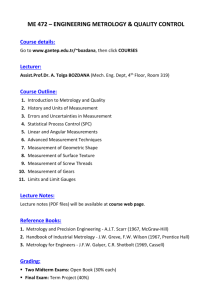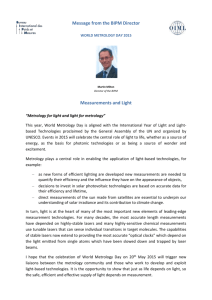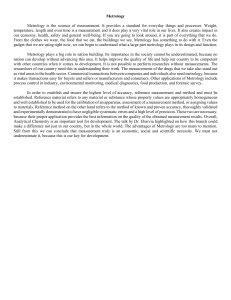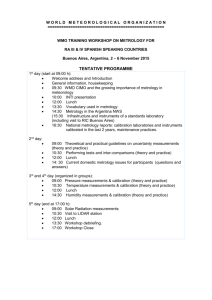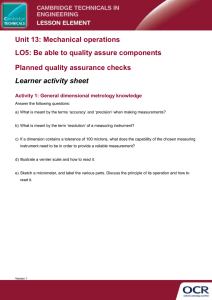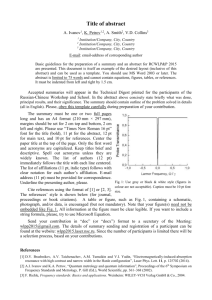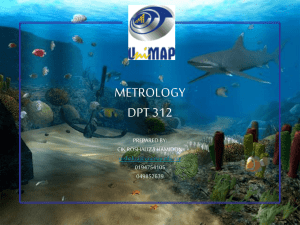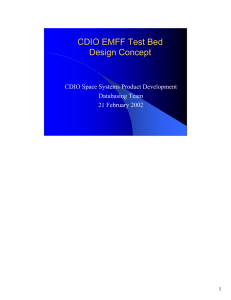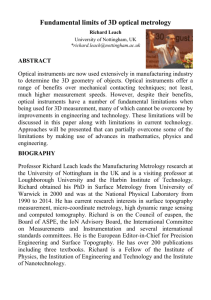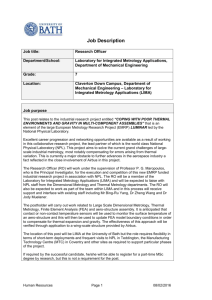0936442 Metrology and Engineering Measurements Laboratory
advertisement
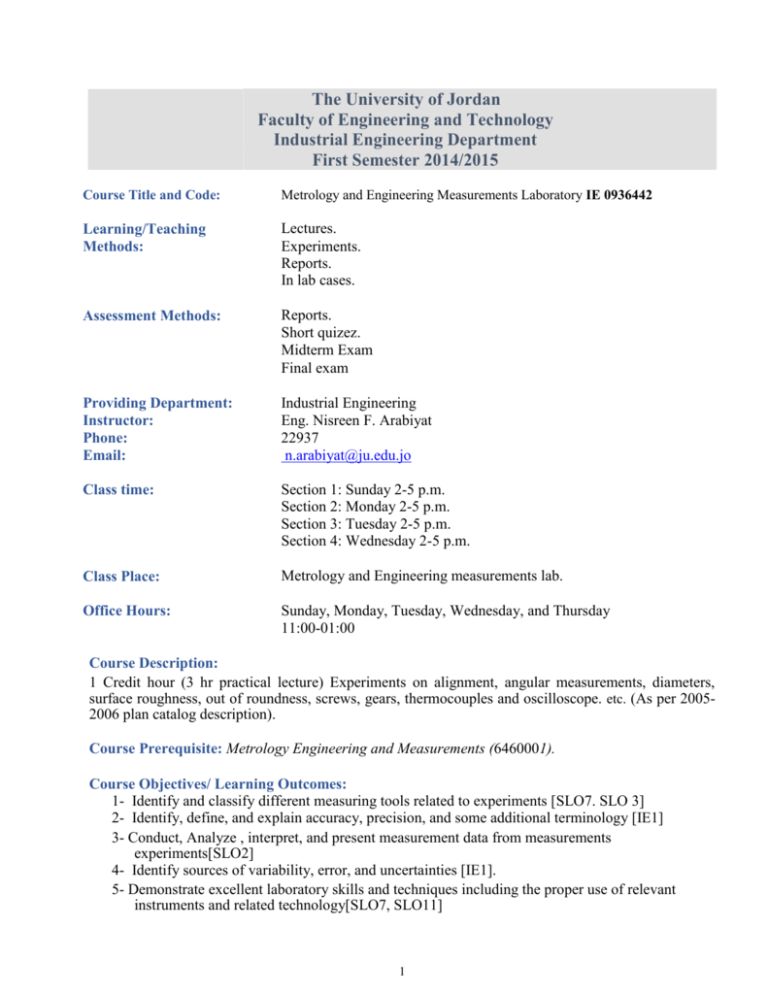
The University of Jordan Faculty of Engineering and Technology Industrial Engineering Department First Semester 2014/2015 Course Title and Code: Metrology and Engineering Measurements Laboratory IE 0936442 Learning/Teaching Methods: Lectures. Experiments. Reports. In lab cases. Assessment Methods: Reports. Short quizez. Midterm Exam Final exam Providing Department: Instructor: Phone: Email: Industrial Engineering Eng. Nisreen F. Arabiyat 22937 n.arabiyat@ju.edu.jo Class time: Section 1: Sunday 2-5 p.m. Section 2: Monday 2-5 p.m. Section 3: Tuesday 2-5 p.m. Section 4: Wednesday 2-5 p.m. Class Place: Metrology and Engineering measurements lab. Office Hours: Sunday, Monday, Tuesday, Wednesday, and Thursday 11:00-01:00 Course Description: 1 Credit hour (3 hr practical lecture) Experiments on alignment, angular measurements, diameters, surface roughness, out of roundness, screws, gears, thermocouples and oscilloscope. etc. (As per 20052006 plan catalog description). Course Prerequisite: Metrology Engineering and Measurements (6460001). Course Objectives/ Learning Outcomes: 1- Identify and classify different measuring tools related to experiments [SLO7. SLO 3] 2- Identify, define, and explain accuracy, precision, and some additional terminology [IE1] 3- Conduct, Analyze , interpret, and present measurement data from measurements experiments[SLO2] 4- Identify sources of variability, error, and uncertainties [IE1]. 5- Demonstrate excellent laboratory skills and techniques including the proper use of relevant instruments and related technology[SLO7, SLO11] 1 6- Enhance the ability to apply knowledge of mathematics, statics, physics and engineering sciences[SLO1] Text book: Metrology and Engineering measurements lab manual. References: 1- Holman, J.P., Experimental Methods for Engineers, 7th edition, McGraw-Hill 2- Jain, R.K., Engineering Metrology, Khanna Publishers. 3- Collett, C.V. and Hope, A.D., Engineering Measurements, ELBS. 4- Morris, A.S., principles of Measurement and Instrumentation, Prentice Hall. 5- Figliola, R.S. and Beasley, D.E., Theory and Design for mechanical Measurements, John Wiley & Sons, Inc. 6- Khare, M.K. and Vajpayee, S., Dimensional Metrology, Oxford & IBH Publishing Co. 7- Gupta, R.C., Engineering Precision Metrology, Khanna Publishers. 8- Doebelin, E.O., Measurement Systems: Application and Design, McGraw-Hill. Grading: 1 2 3 4 percentag 20% 10% 30% 40% 100% Reports & In lab cases Quizez Midterm Exam. Final Exam Total Tentative course outline: Experiment Experiment 1 Experiment 2 Experiment 3 Experiment 4 Experiment 5 Experiment 6 Experiment 7 Experiment 8 Topic Linear Measurements. Block Gauges . Angular Measurements. Auto Collimator. Surface Roughness. The Resistance Temperature Detector (RTD). Thermistors. Strain gauges. Important Notes: a. Do not hesitate to ask questions on any material you do not fully understand. b. Students are required to bring the manual and take notes in all classes. c. Students are expected to attend every class session and they are responsible for all material, announcements and schedule changes. d. Don’t Cheat; direct copying of others work will NOT be allowed or tolerated and will result in a reduction of grade. If you are found to be cheating in any way, on an exam or reports you will be given an “F” for the course. There will be no exceptions. e. All cases of academic dishonesty will be handled in accordance with university policies and regulations. JU policy requires the faculty member to assign ZERO grade (F) if a 2 student misses 15% of the classes that are not excused, and 20% of the classes that are excused f. There will be a number of unannounced quizzes during the semester. Students are expected to be ready to take a quiz any time they have a class. There will be no make-up quizzes. 3
